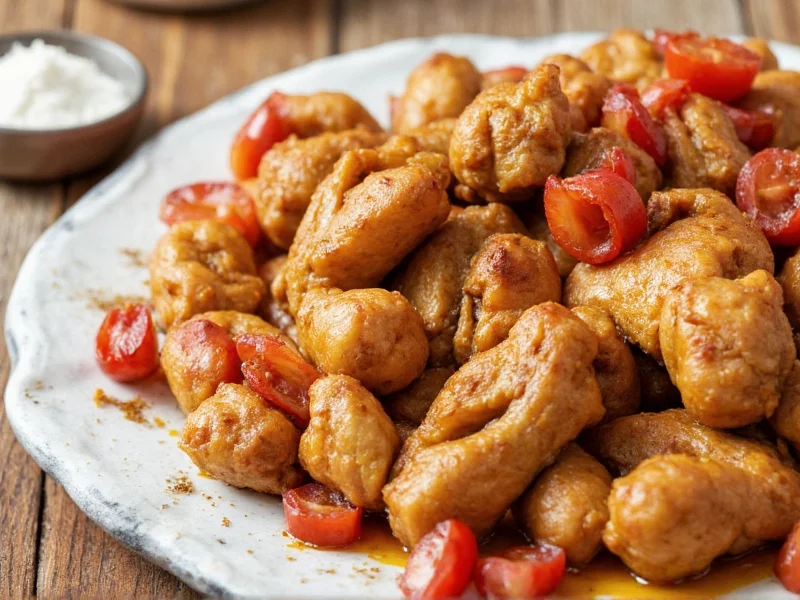The best spices for chicken include paprika, garlic powder, onion powder, thyme, rosemary, cumin, and black pepper. These foundational spices create versatile flavor profiles that complement chicken's mild taste without overpowering it. For classic American dishes, use paprika and garlic powder; for Mediterranean flavors, choose rosemary and thyme; while cumin and coriander work perfectly for Middle Eastern and Indian preparations.
Chicken's mild flavor makes it the perfect canvas for spice experimentation, but knowing which spices truly enhance rather than mask its natural taste is essential for creating memorable dishes. Understanding spice chemistry and flavor pairing principles transforms ordinary chicken meals into extraordinary culinary experiences.
Why Certain Spices Complement Chicken Perfectly
Chicken contains glutamates that respond exceptionally well to certain aromatic compounds found in spices. The protein structure of chicken breast versus thigh also affects how spices are absorbed during cooking. White meat benefits from brighter, more delicate spices, while dark meat can handle bolder, earthier seasonings.
Essential Spice Categories for Chicken Dishes
Classic Foundation Spices
These versatile spices form the backbone of countless chicken recipes across global cuisines. When wondering what spice goes with chicken for everyday cooking, these should be your starting point:
- Paprika - Adds color and subtle sweetness; smoked paprika creates depth in roasted chicken
- Garlic powder - Provides consistent garlic flavor without burning risks of fresh garlic
- Onion powder - Complements chicken's natural sweetness
- Black pepper - Essential for balancing flavors; freshly cracked offers superior aroma
- Salt - Not technically a spice but crucial for enhancing all other flavors
Warm Earthy Spices
These spices work particularly well with chicken thighs and drumsticks, adding complexity to what spices go well with chicken for grilling:
- Cumin - Earthy, slightly smoky flavor perfect for taco seasoning and curry blends
- Coriander - Citrusy notes that balance richer chicken preparations
- Turmeric - Earthy flavor with vibrant color; essential in many chicken curry recipes
- Cinnamon - Surprisingly complementary in small amounts, especially with Moroccan-spiced chicken
Herbal Aromatic Spices
These dried herbs function as spices in cooking applications and are ideal when considering what dried spices go with chicken:
- Thyme - Versatile herb that withstands long cooking times; perfect for braised chicken
- Rosemary - Strong pine-like flavor; excellent with roasted chicken but use sparingly
- Oregano - Essential for Mediterranean chicken dishes; pairs beautifully with lemon
- Marjoram - Softer cousin to oregano; ideal for delicate chicken preparations
| Spice | Best Chicken Preparation | Flavor Profile | Recommended Amount (per pound) |
|---|---|---|---|
| Paprika | Roasting, grilling | Sweet, slightly smoky | 1-2 tsp |
| Garlic powder | All preparations | Pungent, savory | 1-1.5 tsp |
| Cumin | Tacos, curries | Earthy, warm | 1 tsp |
| Rosemary | Roasting | Pine-like, strong | 1/2-1 tsp |
| Thyme | Braising, roasting | Floral, earthy | 1 tsp |
Regional Spice Blends for Chicken
Understanding what spices go with chicken in different cuisines expands your culinary repertoire significantly:
Mediterranean Flavor Profile
Combine equal parts dried oregano, thyme, and rosemary with garlic powder, onion powder, and lemon zest. This blend works exceptionally well for what spices go with chicken breast for healthy cooking, particularly when baking or grilling.
Middle Eastern Za'atar Blend
This traditional blend of thyme, sumac, sesame seeds, and oregano creates a tangy, nutty flavor that complements chicken beautifully. Sprinkle on chicken before roasting or mix with olive oil for a marinade.
Indian Tandoori Spice Mix
For authentic tandoori chicken, combine paprika, turmeric, cumin, coriander, ginger, and garam masala. The yogurt marinade helps these spices penetrate the chicken for maximum flavor.
Practical Tips for Using Spices with Chicken
Dry Brining Technique
For the best results when considering what spices go with chicken for tender meat, use the dry brining method. Mix your chosen spices with salt and apply to chicken 1-24 hours before cooking. This allows flavors to penetrate while improving texture.
Layering Flavors
Professional chefs often use three spice applications:
- Before cooking (dry rub or marinade)
- During cooking (basting with spiced liquids)
- After cooking (finishing spices like fresh herbs or citrus zest)
Avoiding Common Mistakes
When determining what spices go well with chicken without overpowering it, remember these pitfalls:
- Don't use too much rosemary or thyme - these strong herbs can dominate
- Avoid adding delicate herbs too early in cooking
- Be cautious with cayenne and other hot spices - start with small amounts
- Don't forget acid - lemon juice or vinegar balances rich spice blends
Spice Pairing Science for Chicken
Understanding the chemistry behind what spices go with chicken scientifically improves your cooking intuition. Chicken contains glutamic acid that responds well to spices containing terpenes (found in rosemary and thyme) and sulfur compounds (in garlic and onion). The Maillard reaction during cooking creates new flavor compounds that interact with spice components, explaining why certain spices work better with cooked rather than raw chicken.
Seasoning Different Chicken Cuts
The best answer to what spice goes with chicken thighs versus breasts depends on fat content:
- Chicken breasts - Lighter spices like lemon pepper, dill, and tarragon
- Chicken thighs - Bolder spices including cumin, smoked paprika, and curry powder
- Whole chicken - Balanced blends like poultry seasoning or herbes de Provence











 浙公网安备
33010002000092号
浙公网安备
33010002000092号 浙B2-20120091-4
浙B2-20120091-4